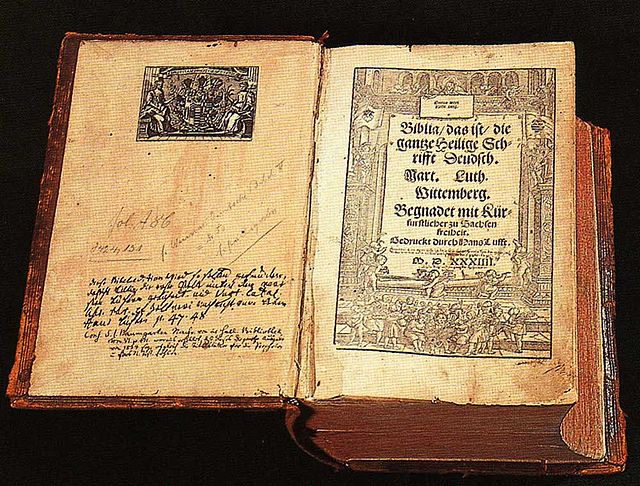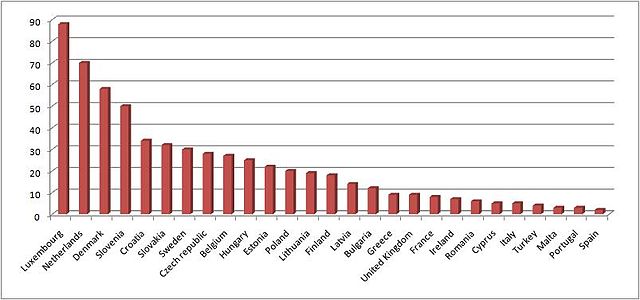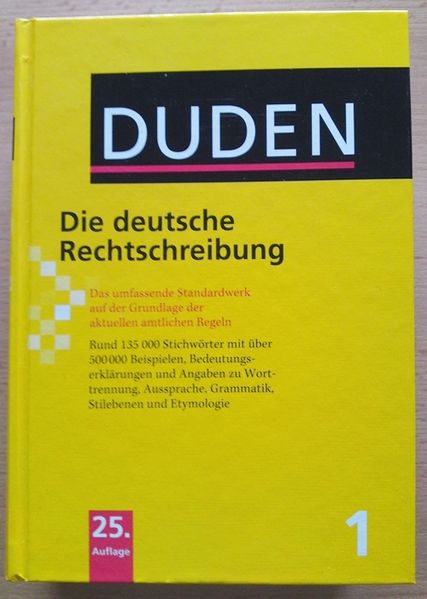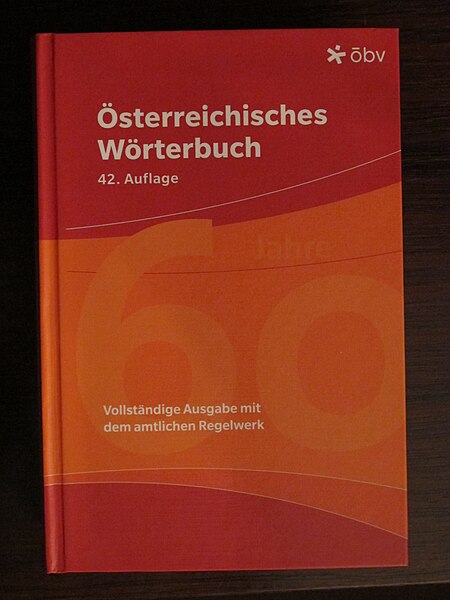German is a West Germanic language in the Indo-European language family, mainly spoken in Western and Central Europe. It is the most widely spoken and official or co-official language in Germany, Austria, Switzerland, Liechtenstein, and the Italian province of South Tyrol. It is also an official language of Luxembourg and Belgium, as well as a recognized national language in Namibia. There further exist notable German-speaking communities in France (Alsace), the Czech Republic, Poland, Slovakia, Denmark, Romania and Hungary (Sopron).
Modern High German translation of the Christian Bible by the Protestant reformer Martin Luther (1534). The widespread popularity of the Bible translated into High German by Luther helped establish modern Standard German.
Bilingual German-English sign at a bakery in Namibia, where German is a national language
Self-reported knowledge of German as a foreign language in the EU member states (+Turkey and UK), in per cent of the adult population (+15), 2005
Swiss German restaurant sign in Andermatt: "Chuchichäschtli", in Standard German "Küchenkästlein"
Standard High German (SHG), less precisely Standard German or High German, is the umbrella term for the standardized varieties of the German language, which are used in formal contexts and for communication between different dialect areas. German is a pluricentric Dachsprache with currently three codified specific national varieties: German Standard German, Austrian Standard German and Swiss Standard German.
Volume 1 "German Orthography" of the 25th edition of the Duden dictionary
42nd edition of the Österreichisches Wörterbuch ("Austrian Dictionary")






